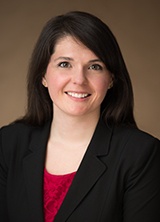Shift in Oregon Claim Closure Analysis?
 As of recently, the Oregon Supreme Court, Court of Appeals, and Workers’ Compensation Board have issued significant decisions relating to closure of Oregon workers’ compensation claims. Overall, these cases indicate a potential larger shift of court and board interpretation of closure rules. Ultimately, what does this mean for claim closure in Oregon?
As of recently, the Oregon Supreme Court, Court of Appeals, and Workers’ Compensation Board have issued significant decisions relating to closure of Oregon workers’ compensation claims. Overall, these cases indicate a potential larger shift of court and board interpretation of closure rules. Ultimately, what does this mean for claim closure in Oregon?
Claim closure in Oregon can be a frustrating process. The administrative rules require either a statement of medically stationary with no permanent impairment from the attending physician or a qualifying closing report that carefully establishes the permanent impairment related to the compensable conditions. As we all know–these can be hard requirements to meet.
In 2019, the Oregon Supreme Court issued Caren v. Providence. As we all know now, the Caren case changed the analysis related to apportionment of impairment between the compensable condition and preexisting condition. The case established that in order to apportion permanent impairment to preexisting conditions, the carrier had to accept and deny a combined condition. More recently, in Robinette v. SAIF. the Oregon Court of Appeals took this analysis a step further and determined a carrier is on the hook for 100% of permanent impairment even for unrelated conditions if the compensable conditions materially contributed to any of the permanent impairment unless a combined condition acceptance and denial issued.
The Oregon Workers’ Compensation Board has also indicated a shift in their analysis of what findings to use to rate impairment. At closure, the attending physician’s findings (or findings the attending physician has concurred with) are used to rate impairment. If the worker requests reconsideration and an arbiter exam is used, the arbiter’s findings are used to rate impairment unless a preponderance of the evidence establishes findings used by the attending physician are more accurate. OAR 436-035-0007(5). Over the past year or so, the WCB has more frequently relied on the findings from the attending physician rather than the arbiter’s findings. In other words, they are determining the attending physicians findings are more accurate than the arbiters. Based on my analysis of the cases, this is occurring for one major reason. When the time comes to close, carriers and closure specialists do their due diligence to obtain closure information required by the rules. Specific questions are asked and specific range of motion findings are obtained. When reports come back insufficient from attending physician or consulting closing physicians, the discrepancies are addressed before claim closure. Arbiters are asked a series of specific questions from the Appellate Review Unit. However, often times their reports are not detailed. The ARU often requests clarification from the arbiters but because there are statutory timelines to issue reconsideration order, the responses may not be received in time. If the clarification is not obtained, the WCB is more likely to rely on the more detailed findings from the attending physician.
What do these three significant findings mean for Oregon workers’ compensation claims? Navigating claim closure is more difficult than ever. Claims need to be carefully evaluated to determine if there is a basis for a combined condition in order to apportion impairment—this may mean going back to your experts again. If there is permanent impairment as a result of the compensable claim, but no evidence of combining, you may be responsible for 100% of impairment. Carriers should continue to seek specific findings from the attending physician in order to close a claim. On reconsideration, if a less than specific arbiter report is received, a carrier can reach out to the ARU to request clarification of the findings. Bringing up the issue to the ARU may result in a cleaner record. Even if the report is not received in time for the reconsideration proceedings, it may be admitted into evidence if the reconsideration is appealed.
Claim closure will continue to be frustrating in Oregon. If you have any questions regarding closing claims or need assistance, you can contact me at or 503-595-6107.

